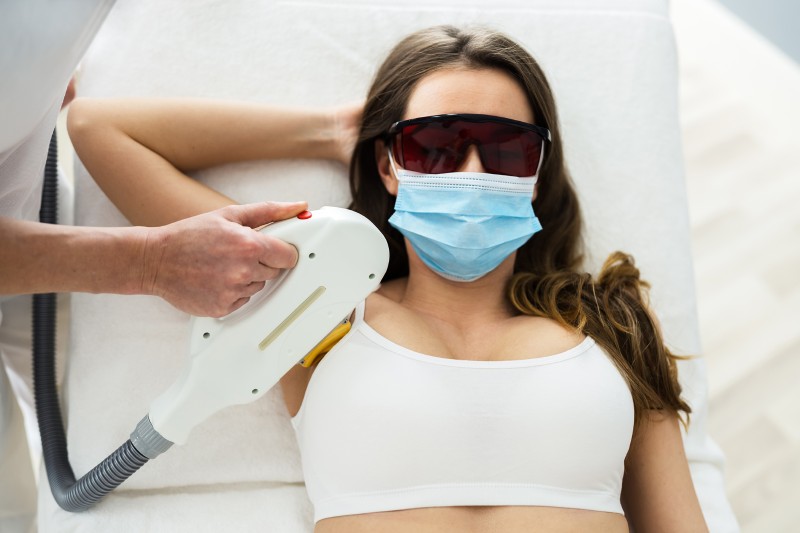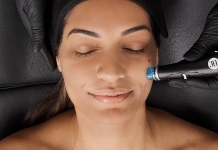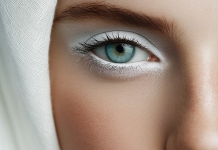What salons need to know about new face covering rules

Further verification has been issued by the government in relation to the wearing of face coverings in salons in England.
All staff and customers, apart from those who are medically exempt, are required by law to wear a face covering in all premises providing close contact services, personal care and beauty treatments including hair salons, beauty salons, barbers, nail salons, massage centres, tattoo and piercing studios.
As the law covers all locations where close contact services take place, this also includes when working in a client's home.
However, the National Hair & Beauty Federation (NHBF) has confirmed that the wearing of a face covering only applies to salon receptionists if there is no physical barrier or screen between themselves and clients. If there is a screen, then face coverings do not need to be worn.
A face covering is defined as ‘something which safely covers your mouth and nose'. When performing a treatment that requires them to work close to a client's face, mouth and nose, hair and beauty and hair professionals are advised to wear a Type II face mask which is a medical face mask made from a protective 3-ply construction. There is no requirement for staff to wear visors or goggles.
Clients may remove face coverings for facial treatments.
Salons are required to display signage to ensure customers are aware of their obligation to wear a face covering where they are not exempt.
Police can enforce compliance, whilst Local Authorities may use their enforcement powers against businesses for failing to display appropriate signage.
Additional hygiene practices should also be followed including:
- Washing hands thoroughly and regularly with soap and water for 20 seconds or using hand sanitiser before putting a face covering on, and before and after removing it
- Avoiding touching the face or face covering to prevent contamination from hands
- Changing the face covering if it becomes damp or it is touched
Commenting on the mandatory wearing of face coverings in close contact service locations, Richard Lambert, chief executive of the National Hair & Beauty Federation, says:
“We all have a duty of care to protect staff and clients. Whilst the wearing of face masks at work again may feel inconvenient, it is now a legal requirement. I met BEIS and Cabinet Office officials this week who made clear this measure is designed to stop any further restrictions, such as social distancing or another lockdown, that could severely affect business just as the industry is recovering.”

-13546.png)









